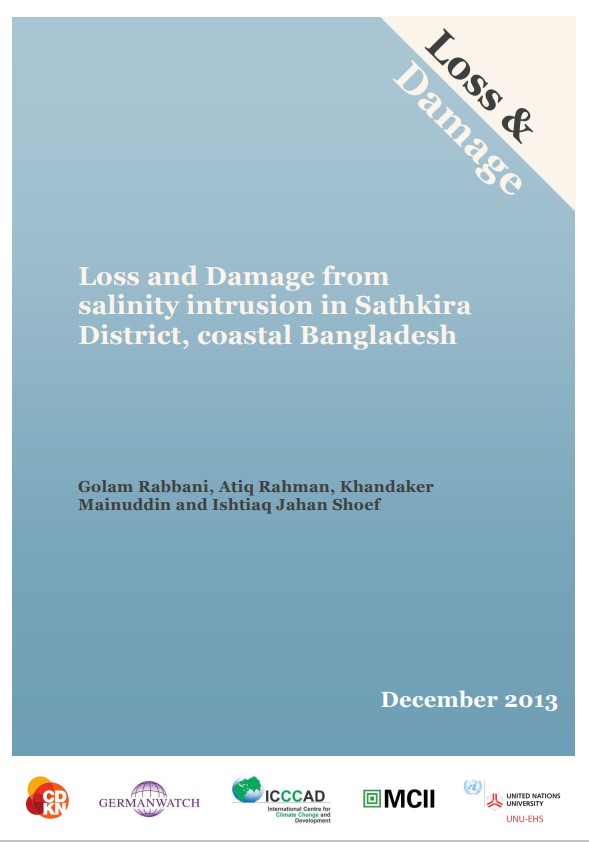🌿 COP 30 - Building a Greener Tomorrow
The 30th UN Climate Change Conference (COP 30) is taking place in Belém, Brazil. Stay informed about global climate actions, negotiations, and live sessions from 10 – 21 November 2025.
Get Updates
Loss and Damage from salinity intrusion in Sathkira District, Coastal Bangladesh

Files
Date
January, 2024Author(s)
- Golam Rabbani
- Atiq Rahman
- Khandaker Mainuddin
- Ishtiaq Jahan Shoef
Abstract
Bangladesh Centre for Advanced Studies (BCAS) supported by United Nations University (UNU) has conducted a study to explore the interaction between salinity intrusion and rice production as well as drinking water supply in Shyamnagar Upazilla (Sub-district) under Satkhira district. The research has analyzed how people adapt to salinity intrusion and how much they can avoid loss and damage to rice production. It also looked at how people dealt with increasing salinity in drinking water and its impacts on health. Both quantitative (household survey) and qualitative tools (focus group discussions, in-depth interviews, and community consultations) have been used to explore how the impact of salinity intrusion on rice production and drinking water leads to loss & damage among households. High level of salinity in the rice fields is being experienced by 81% of the households, at present, compared to 2% of Loss and damage from salinity intrusion in Bangladesh households a decade ago. Higher salinity levels in drinking water sources are causing waterborne diseases that primarily affect children and women. Most of the households in the study area face food crises more or less all around the year, and the crisis continues to worsen during August and September. The farmers have been practicing various measures to adapt to salinity in soil over the years. The most important adaptation option for the farmers is to cultivate saline-tolerant rice cultivars such as BRRI 47 and BINA 8. But after the occurrence of cyclone Aila in 2009, the salinity level in the study areas increased to a level reducing the productivity of these varieties. As a result, the study households have been incurring loss of harvests in the three consecutive years and the loss estimated at 1.9 million USD for the four villages surveyed.
Citation
Rabbani, G., Rahman, A. Khandaker, M. and Shoef, I.J. (2013). Loss and damage from salinity intrusion in Sathkira District, coastal Bangladesh. Loss and Damage in Vulnerable Countries Initiative, case study report. Bonn: United Nations University Institute for Environment and Human Security.
Publisher
BCAS
Rights Holder
BCAS
URI
https://knowledgehub.pksf.org.bd/collections/UlZEc0RSRGtFUldsQ0M0bXkvczRvUT09
